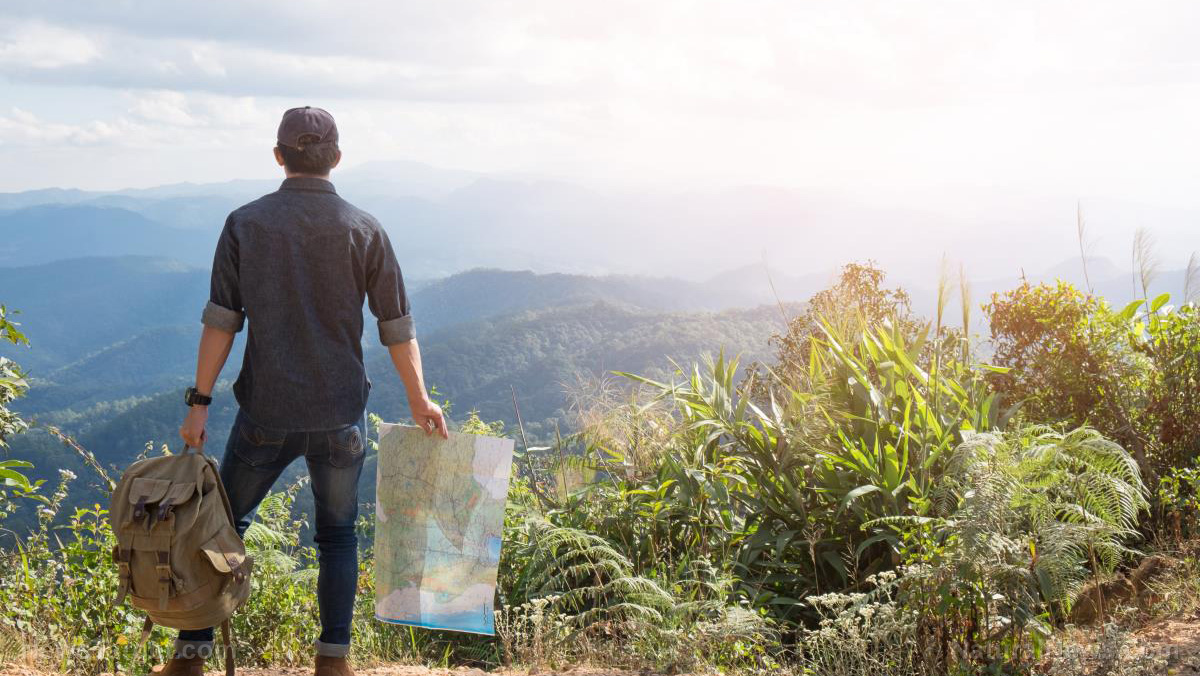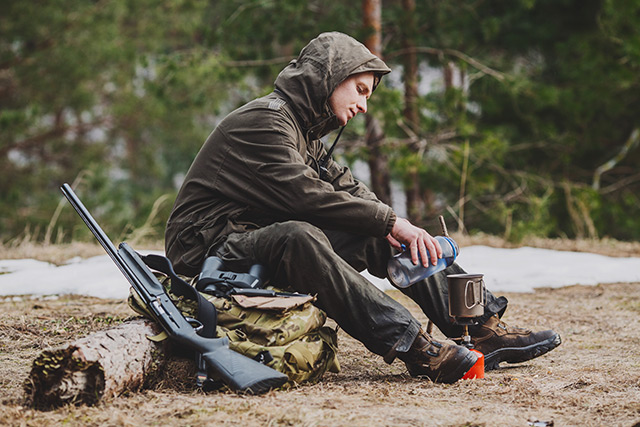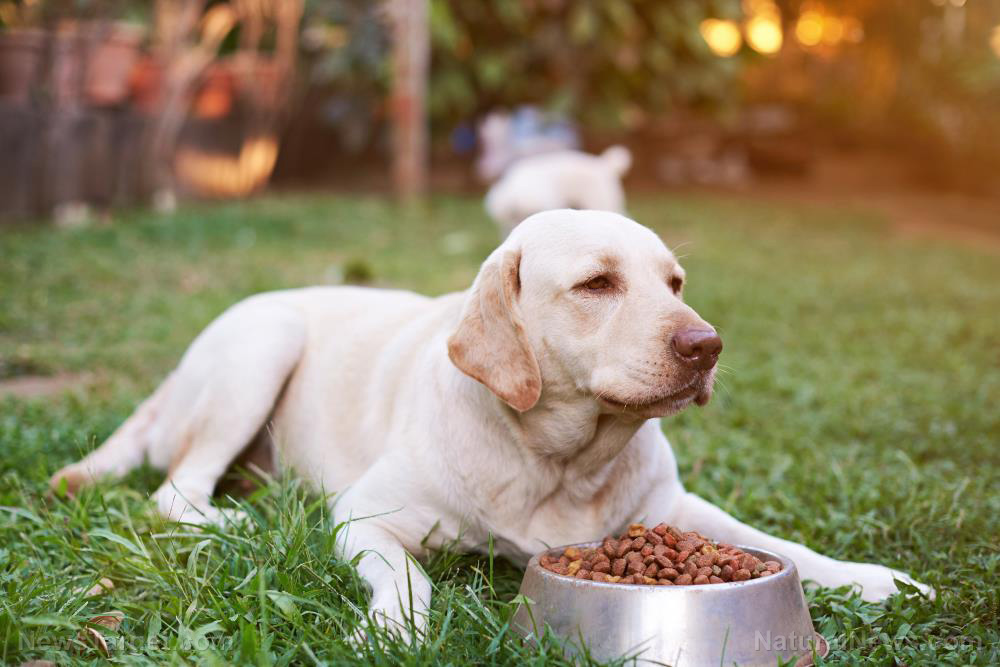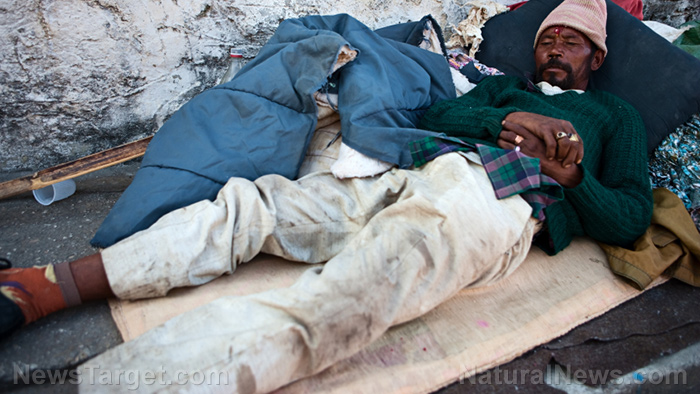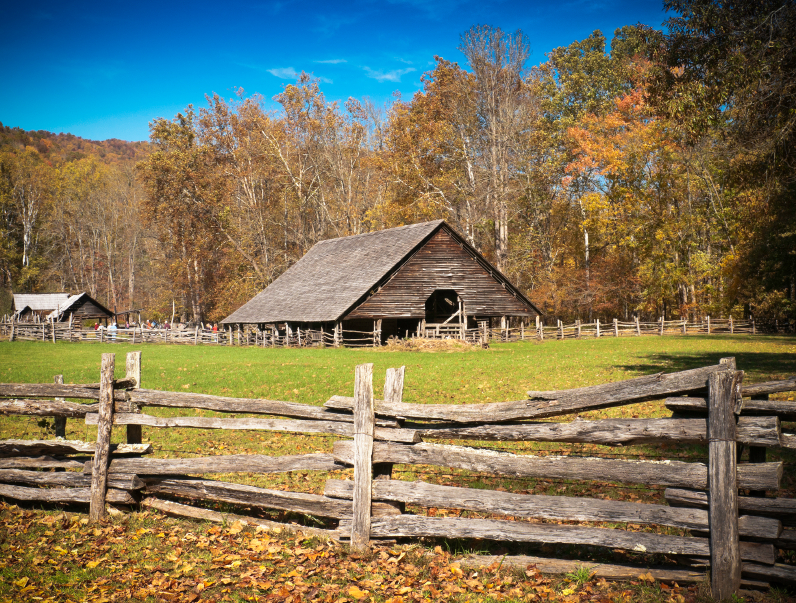A basic guide to sanitation and cleanliness when SHTF
06/21/2018 / By Zoey Sky

As a prepper, before SHTF you must cover the basics such as food and water, survival gear, and shelter. Don’t forget the sanitation of your headquarters. By ensuring hygiene and sanitation among your survival group and your home or outdoor shelter, you can improve your chances of survival.
When things are normal and quiet, sanitation may seem like second nature. After all, it’s become a daily habit to brush your teeth and apply deodorant after you shower. But what happens when SHTF and you run out of water? This is why you need to know how to properly handle hygiene and sanitation during a survival scenario. (h/t to PreppersWill.com)
Sanitation when SHTF
When disaster strikes, you still need to prioritize sanitation because properly eliminating waste is one way to preserve your supplies and prevent an outbreak of disease and infection. Follow these tips to keep your shelter sanitary:
- Human waste – Prioritize proper human waste control during a survival situation. Human waste may produce germs and bacteria, and staying healthy after SHTF can help improve your chances of survival. The first step is to separate the waste, and you can do this by keeping urine away from solid waste. This will also minimize any odors. Next is burying human waste. If you’re staying at a campsite, bury your waste at least 200 feet away from your water source.
- Cathole – To dig a cathole, dig a hole at least six to 12 inches deep and wide enough that it doesn’t run over. Make sure the hole is about 200 feet away from all food and water sources. If you’re done using the cathole, fill it with surrounding earth to help minimize any odors and keep pests away.
- Collecting rainwater – Collecting rainwater is crucial to your survival when SHTF since it can be used for most of your needs: cooking, dishwashing, gardening, etc.
- Five-gallon bucket – You can make the bucket more comfortable to use by getting an old pool noodle and cutting it so it fits around the lip of the bucket. Slice down one side so the noodle fits over the rim. Depending on how often you “use” the bucket, you must regularly empty it. You can also cut out the bottom and place it over a cathole. You can also fill the bucket halfway with sawdust or dirt, then cover your waste with more dirt.
- Toilet – If you’re staying in your home after SHTF and you still have access to a septic tank, your toilet/s will remain functional. However, you still need water to flush down the waste. For this technique to work, you need to be situated near a creek. You can also set up a rain collector on your property. (Related: Maintaining survival sanitation when you bug IN.)
- Trash collection – Try to recycle your trash so there’s not much of it to dispose of.
Hygiene when SHTF
Even after disaster strikes, you need to stay hygienic to prevent diseases and infections. However, you will need to improvise:
Sponsored solution from the Health Ranger Store: Lab-verified Nascent Iodine solution is a dietary supplement that provides your body with supplemental iodine to help protect your thyroid during radiation exposure. Nuclear accidents such as Fukushima (or nuclear war) can expose your body to radioactive iodine-131, a dangerous radioisotope. Pre-loading your system with stable iodine occupies the iodine receptor sites on your organs, causing your body to naturally expel radioactive iodine you may have been exposed to through air, food, water or milk products. This defensive strategy is recommended by nearly all health authorities, worldwide, including the Nuclear Regulatory Commission. Discover more at this link.
- Foot care – Don’t forget your feet. Always keep your feet clean and dry, and massage them at least once a day.
- Keeping your clothes clean – Change out of your soiled clothes into clean clothes before turning in for the night. Don’t sleep in wet and grimy clothes because this will sully your sleeping bag/bed and cause rashes and skin irritations.
- Natural deodorant – If you run out of deodorant, use some charcoal instead. It can eliminate almost all body odors.
- Natural soap and baths– If you run out of soap, you can find several plants that will act as natural cleaning agents for your skin. Some soap plants include amole, mountain lilac, soaproot, and yucca. You can also make soap by combining ashes and fat. When using a water source like a lake, pond, or river as a bath, refrain from using any soap. Don’t bathe in an area where people are also using the water source downstream from you. Other bathing alternatives include biodegradable soap and a container of water. You can also give yourself a sponge bath using a bandanna if it’s too cold to bathe.
There are various items that you will need in your bug-out bag, but one versatile item that you mustn’t forget is baking powder since it can help absorb odors. This makes it perfect for various sanitation and hygienic applications.
Keep these tips in mind so you know how to maintain cleanliness and sanitation in your home or camp if and when SHTF. Visit Preparedness.news to learn more.
Sources include:
Tagged Under: baking powder, bug in, bug out, catholes, Charcoal, cleanliness, disaster, five-gallon buckets, homesteading, human waste, hygiene, natural cleaning agents, off grid, preparedness, prepper, prepping, sanitation, SHTF, survival, survival skills, survivalist, toilet paper, trash collection







